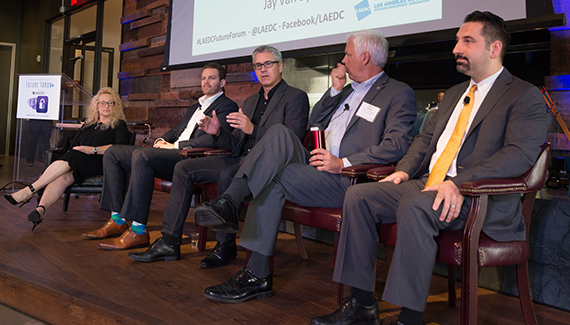
Leaders in digital technology, education, business, and city governance gathered in El Segundo Dec. 14 for Los Angeles County Economic Development Corporation’s (LAEDC) Future Forums: Cyber Security to address society’s increasing vulnerability to cyber threats.
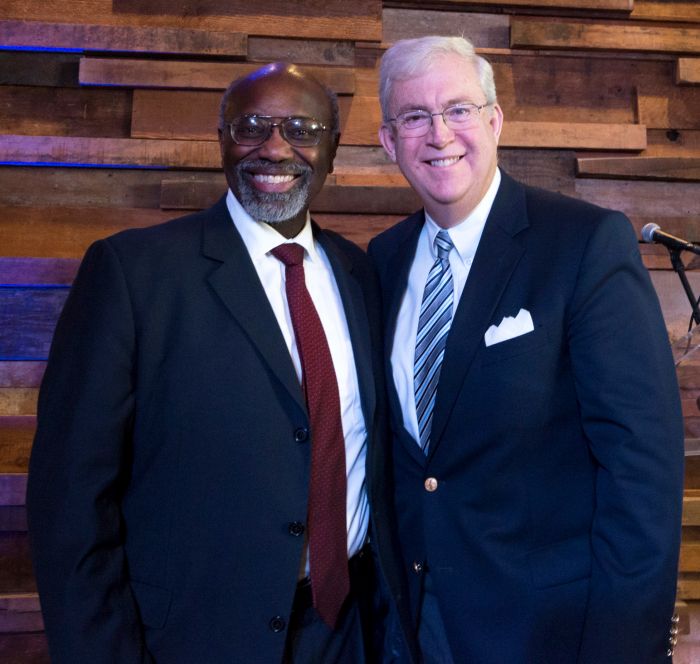
Cyber Security was the second of four LAEDC Future Forums being presented and sponsored by California State University, Dominguez Hills (CSUDH). University President Willie J. Hagan serves on the LAEDC board and initiated the series as a way to engage thought leaders from key Los Angeles industries in in-depth discussions on the issues and opportunities facing their industries. The first in the series took place in September with a look at virtual medicine.
Among the featured speakers at Future Forums: Cyber Security were two people affiliated with CSUDH: adjunct faculty member Jay van Zyl, who also is cofounder of ecosystem.Ai, which analyzes and predicts how human and business ecosystems behave during times of change; and alumnus Ted Ross (’05, MBA, business administration), who is chief information officer for the City of Los Angeles. William Krenz, vice president and chief information officer (CIO) for The Aerospace Corporation; Wendy Frank, a partner in PricewaterhousCoopers‘ cybersecurity practice, were featured speakers, and Marshall Heilman, vice president of consulting at Mandiant, served as the forum’s keynote speaker.
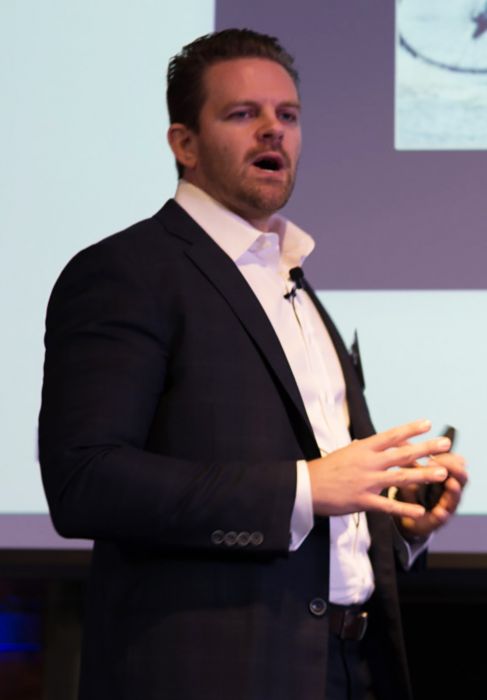
Heilman, who laid the groundwork for an informative discussion on cybersecurity, focused in part on how a wide swath of L.A.-based industries and institutions face unprecedented risk from cyber-attacks. He said that the proliferation and “professionalization of hacking” has grown substantially in many industries, which was echoed by nearly all the forum’s speakers.
“It used to be some kid sitting in a basement in New Jersey hacking because he felt like it. Now we are hearing about those who are nation-state sponsored hacking into what we call intellectual property to steal information from companies to help build their own programs,” said Heiman. “Many hackers are now monetarily motivated to be good at their jobs, with very few repercussions for them.”
Ross, who as CIO serves as general manager of L.A.’s Information Technology Agency (ITA) and works directly for L.A. Mayor Erik Garcetti. When Garcetti took office in 2013, his second executive directive was to create a “collaborative cybersecurity” approach to strengthen the city’s preparedness, according to Ross.
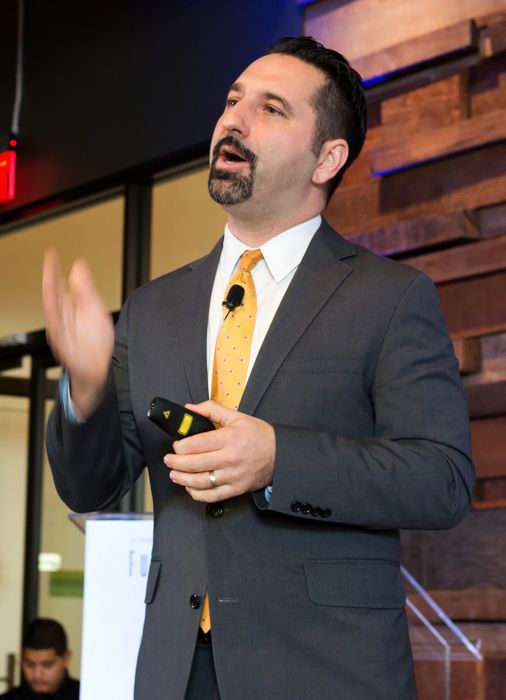
Garcetti established the Cyber Intrusion Command Center, which focuses on collaboration, standards, and facilitating a proper objective. In 2014, the ITA updated its cyber tools and policies, and in 2015 L.A.’s Integrated Security Operations Center was opened to provide situational awareness, threat intelligence, internal coordination, and external data sharing.
Zyl’s talk, “Cybersecurity and Fintech (financial technology),” explored the social science of cybersecurity, and what it looks like at a “broader more collaborative business level” as fintech “rethinks” strategies to cope with the growing “displacement” of physical money by digital technologies. He called it a “radical revolution.”
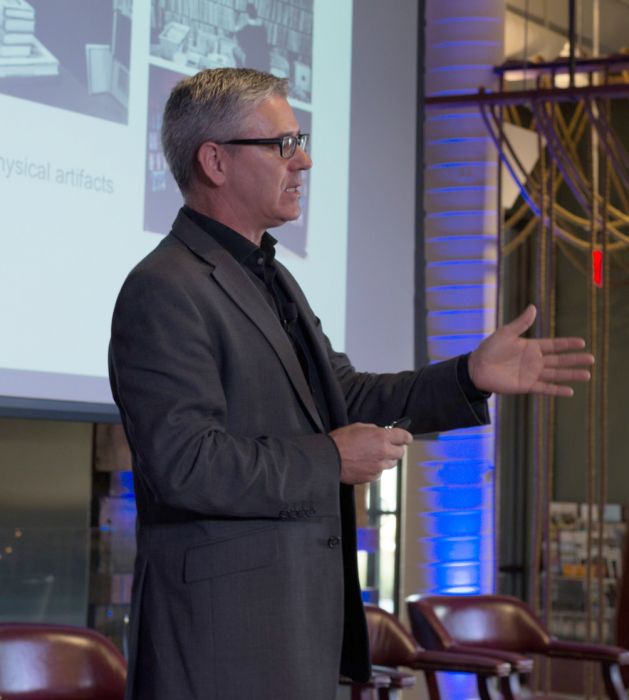
“Every single pillar in the financial world is being reinvented to move from the physical vault into the digital world; from a highly-protected closed up world, to an opened world–from writing checks, to tap and go,” said Zyl. “There are about 50 financial services payment system companies on one floor [in a building in San Francisco]. They are all sharing with each other how they are going to use VisaNet and MasterCard; how to get into the Swiss global networks … It’s all shared freely now. Cybersecurity is now becoming a social science problem much more than just a technological problem.”
The final two Future Forums will focus on digital entertainment (March 8, 2017), and artificial intelligence/autonomous vehicles (June 28). The locations are yet to be determined.